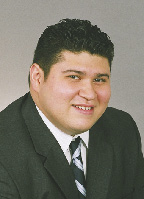In a typical real estate sale transaction, a property owner is taxed on any gain recognized from the sale. Under section 1031 of the Internal Revenue Code, however, sellers may, under specific circumstances, defer the recognition of capital gains on sales of investment property or property held for productive use in a trade or business by exchanging such property for a like-kind replacement property. In general, a like-kind property is one that is similar to the kind or character of the property sold.
For an exchange to occur within the meaning of section 1031, a seller may not "control" the proceeds of sale prior to the purchase of the replacement property. A seller will be deemed to have control of the sales proceeds if the seller directs funds to an escrow account or a trust that is controlled by the seller. As such, most like-kind exchanges under section 1031 are effectuated through a Qualified Intermediary pursuant to safe harbor provisions established by U.S. Treasury Regulations. Qualified Intermediaries facilitate section 1031 transactions by allowing the investor to comply more easily with the control of proceeds requirement of section 1031 mentioned. An investor may arrange for a Qualified Intermediary to receive proceeds from the sale of a property, to hold these funds on deposit pending reinvestment and to disperse funds when the acquisition of the replacement property has been finalized. Several title insurance companies and other third party agents provide these services for a fee.
Section 1031 also requires that, among other things, the value of the replacement property equal or exceed the value of the relinquished property, and that the like-kind exchange be completed within a strict time limit.  Specifically, the replacement property must be identified within 45 days after the transfer of the relinquished property, and acquired within 180 days after such transfer.  As such tax payers looking to take advantage of tax deferral under section 1031 face the practical difficulty of satisfying the requirements of section 1031 within the limited time frame allotted.
A current and expanding trend in like-kind exchange transactions has been the acquisition of a replacement property through tenant-in-common (TIC) ownership. By reinvesting through TIC ownership a tax payer may acquire a fractional, tenant-in-common interest in the replacement property rather than the entire fee simple interest in replacement property, which may involve additional equity or debt arrangements. A tenancy in common is defined by most states as an estate in fee simple under which each TIC is entitled to share the entire property and has a proportionate interest in any proceeds from rent, sale or partition. The tenant-in-common also retains the right to have their interest transferred, to have the land partitioned either by mutual consent or by court order and set guidelines for the disposition of land upon death.
This trend has been further enhanced through companies acting as TIC sponsors, which provide greater ease for investors to find suitable replacement property. TIC sponsors purchase properties with the exclusive purpose of selling TIC interests to investors looking to reinvest in replacement properties. A TIC sponsor offers an investor an array of choices with respect to grade, quality, length of term, and price of an eligible section 1031 property. TIC sponsors can also more easily offer investors greater geographical diversification for their real estate investment portfolios.
TIC ownership may have increasing prominence should there be a change in federal tax policy. In particular, to the extent that the Obama Administration's tax policies call for an increase in capital gains tax from 15% to 20% for families earning incomes over $250,000, there may well be an appreciable increase in 1031 exchanges.  Prudent investors looking to manage their future tax liability may find TIC sponsors to be a valuable ally.
Ernesto Castillo is a third year law student at the University of Connecticut School of Law and an incoming associate at Halloran & Sage LLP in Hartford, Conn. A list of citations may be obtained by contacting the author.
Tags:
A trend in like-kind exchanges has been acquisition of a replacement property through TIC ownership
November 19, 2008 - Connecticut









